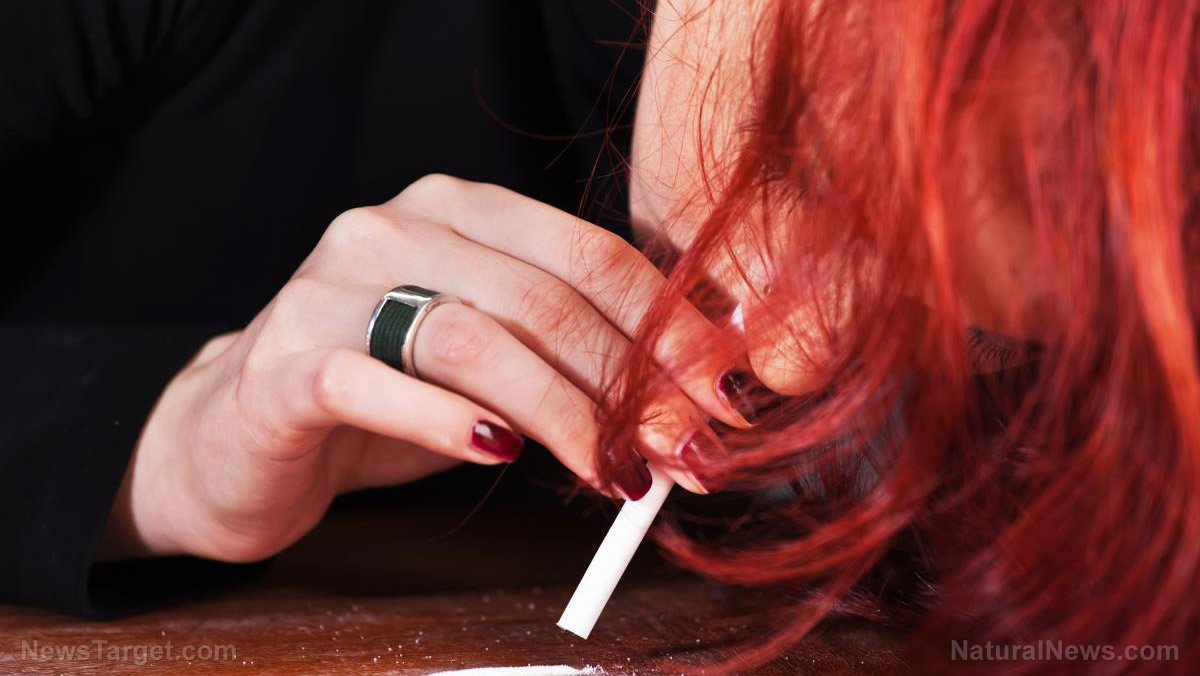Coca-Cola operates secret COCAINE manufacturing facility in New Jersey
04/04/2023 / By Ethan Huff

For the past more than a century, a nondescript chemical manufacturing plant in Maywood, N.J., has been secretly producing cocaine for the pharmaceutical industry – the only United States-based facility, in fact, that is allowed to do so by the Drug Enforcement Administration (DEA).
The Stepan Company, as it is now called, imports around 500 metric tons of coca leaves per year, according to past records, which are first “decocainized” and used by the Coca-Cola Company to produce its iconic soda beverage. After the food syrup is produced, the leftover cocaine, worth around $2 billion in an average year, is then sold off to Big Pharma to use in the production of opioid drugs, as well as in the numbing agents and topical analgesics used by dentists on their patients.
It is a highly lucrative operation that functions as a monopoly since nobody else in America is legally allowed to do the same. And the reason this is in the news cycle now is because Stepan recently renewed its petition with the DEA to continue churning out the controlled substance for Big Pharma and Big Industry.
(Related: In 2013, Coca-Cola started pushing soft drinks for breakfast in bid to boost sales and increase profits.)
Why is Coca-Cola allowed to import coca leaves and deal cocaine, but not average Americans?
The DEA will not say specifically how much coca Stepan is importing these days, though we know from 1980s records that the volumes tend to be very high. Anywhere from 56 to 588 metric tons of coca, according to The New York Times, is brought in mainly from Peru, but also from Bolivia.
Illustrator and author Ricardo Cortés has been chronicling the history of coca use in cola, as well as the Maywood plant’s exclusive right to import it. Records he has obtained suggest that anywhere from 45 to 104 tons of coca leaves were imported each year between 2007 and 2010.
“They’re the most American red, white and blue brand, but they don’t want to be associated with the drug wars,” Cortés is quoted as saying. “They’re doing a refined version of what’s going on in the jungle of Bolivia.”
Again, nobody else in the U.S. can legally import coca leaves and use them for any purpose besides the Stepan plant and Coca-Cola. It has been illegal to import coca into the U.S. since 1921, in fact, with Stepan and Coca-Cola holding the only exception to that rule.
As a result of this special arrangement, Coca-Cola is now worth hundreds of billions of dollars, thanks to its special allowance to use a controlled substance in its beverages. Big Pharma is also a multi-billion-dollar enterprise, in part for the very same reason.
“The Coca-Cola Company, now worth around $265 billion, has imported the ‘controlled substance’ freely for the last century,” reported the Daily Mail. “In that time, as governments have strived to crack down on the notorious coca plant, the company miraculously avoided restriction.”
“Article 27 of the United Nations’ 1961 Single Convention on Narcotic Drugs, which imposed strict controls on the cultivation of the coca bush, made suspiciously precise exceptions.”
In the section of that convention that covers the illegality of cocaine, a special “supplementary information” section explains that, in accordance with 21 CFR 1301.34(a), the Stepan Company, located at 100 West Hunter Ave. in Maywood, applied to be registered as an importer of coca leaves.
“The company plans to import the listed controlled substance to bulk manufacture other controlled substances for distribution to its customers,” that section further reads. “No other activities for this drug code is authorized for this registration.”
More related news coverage can be found at Twisted.news.
Sources for this article include:
Submit a correction >>
Tagged Under:
coca, Coca Cola, cocaine, New Jersey, real investigations, Suppressed, Twisted
This article may contain statements that reflect the opinion of the author
New title
COPYRIGHT © 2017 FACTCHECK.NEWS
All content posted on this site is protected under Free Speech. FactCheck.news is not responsible for content written by contributing authors. The information on this site is provided for educational and entertainment purposes only. It is not intended as a substitute for professional advice of any kind. FactCheck.news assumes no responsibility for the use or misuse of this material. All trademarks, registered trademarks and service marks mentioned on this site are the property of their respective owners.


